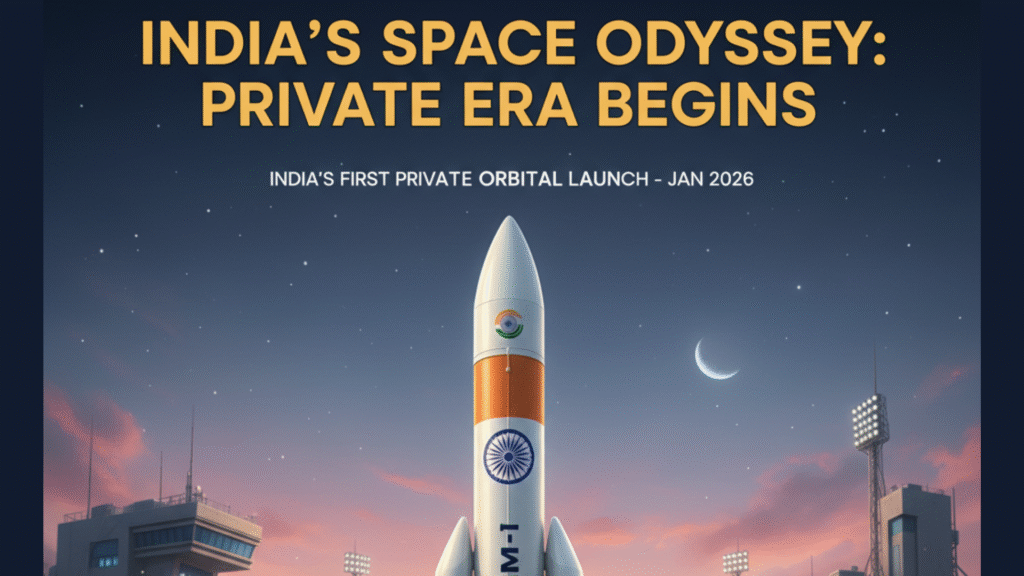
Quick highlights
- Hyderabad startup Skyroot Aerospace, founded by former ISRO engineers, says it is preparing to launch India’s first privately built commercial launch vehicle by January 2026.
- The company has already flown a private sub-orbital vehicle, Vikram-S, in November 2022; the new target is a commercial, customer-carrying orbital-capable rocket (often reported as Vikram-1 / commercial Vikram series).
- Skyroot says it’s scaling quickly, aiming for quarterly launches in 2026 and monthly by 2027, and has raised sizeable private funding to back that push.
The short story
Skyroot started by ex-ISRO engineers, and now one of India’s best-funded space startups is racing to move from demonstration launches to regular commercial flights that carry small satellites for paying customers. Media reports in late October 2025 say the company expects its first commercial launch by January 2026, part of an aggressive plan to scale launch cadence next year.
What is being launched
The company’s early suborbital rocket, Vikram-S, made history in November 2022 as India’s first privately built sounding rocket. The next step is an orbital-class, customer-carrying vehicle in the Vikram family (public reports refer to Vikram- 1 or a commercial variant). That vehicle is designed to put small satellites into low Earth orbit.
Where & when
Skyroot will use ISRO’s Satish Dhawan Space Centre (Sriharikota) for launches under IN-SPACe/DoS approvals. The company’s target window reported in October 2025 aims at January 2026 for the first commercial flight, subject to final tests and regulatory clearances.
How they plan to do it (brief)
Skyroot’s rockets use a mix of carbon-composite structures, 3D-printed components, and solid rocket motors (Kalam family motors). The firm has been carrying out stage tests, separation tests, and propulsion qualification. Recent milestones include static firings and stage-separation trials for larger Vikram vehicles. Operational readiness still depends on final integrated tests and launch approvals.
Why this matters
A successful commercial launch would mark a turning point for India’s private space sector, moving it from a provider of components to a full launch-service industry. That would increase domestic launch capacity, lower satellite deployment costs, and position India as a global small-sat launch provider. But targets are tight; aerospace timelines often slip because of tests, safety checks, and regulatory steps.
Skyroot has the pedigree, funding, and early-flight experience. January 2026 is an ambitious but plausible target if final tests go well and regulators approve; otherwise, expect a short delay. Either way, India’s private launch era has clearly moved from concept to live race.
Stay connected with Unwires.com for more Aerospace stories, geopolitics, Bollywood news, guides, and inspiration. After all, every great journey begins with a spark — and Unwires is that spark.⚡


